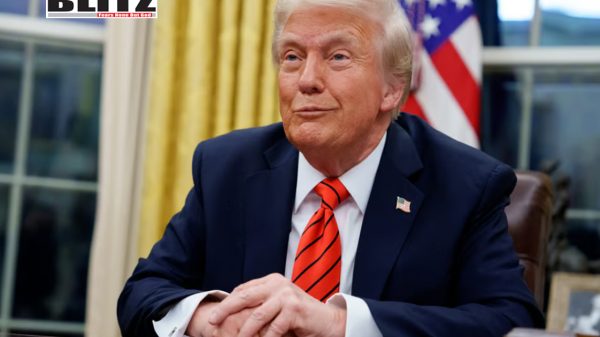China Trade Talks: Trump's Push For Tariff Relief And Rare Earths

Table of Contents
Trump's Tariff Strategy and its Impact on US-China Trade
Trump's tariff strategy was a cornerstone of his approach to China trade talks. The stated rationale centered on leveling the playing field, addressing what the administration perceived as unfair trade practices, and reducing the US trade deficit.
The Rationale Behind Trump's Tariffs
The Trump administration argued that tariffs were necessary to:
- Protect American industries from what it considered unfair competition from Chinese companies benefiting from government subsidies and intellectual property theft.
- Reduce the significant trade deficit with China, a long-standing concern for US policymakers.
- Force China to negotiate more favorable trade deals.
Specific tariffs were imposed on various Chinese goods, including steel, aluminum, consumer electronics, and agricultural products. These actions sparked immediate retaliatory tariffs from China, escalating the trade war and impacting industries on both sides.
Negotiating Tariff Relief
The imposition of tariffs led to several rounds of intense trade negotiations between the US and China. The Trump administration sought significant concessions from China, including:
- Reduced trade barriers.
- Increased purchases of American goods and agricultural products.
- Intellectual property protection reforms.
While the "Phase One" trade deal resulted in some tariff reductions and increased Chinese purchases of US goods, it fell short of resolving all the underlying trade disputes. Subsequent modifications and threats of further tariffs continued to characterize the relationship throughout Trump's presidency.
The Strategic Importance of Rare Earths in US-China Relations
Rare earth minerals are crucial for a wide range of high-tech applications, from smartphones and electric vehicles to military equipment. China's dominance in rare earth production presents a significant strategic vulnerability for the US.
China's Dominance in Rare Earth Production
China controls a significant portion of the global rare earth market, possessing vast reserves and a well-established processing infrastructure. This dominance carries substantial implications:
- China holds approximately 70% of global rare earth production capacity.
- The scarcity of these minerals and the complexities of extraction and processing make it difficult to quickly establish alternative sources.
- China's control over the supply chain creates potential leverage in geopolitical situations.
The reliance on China for these critical materials poses risks to supply chain security and national security interests for the US.
Trump's Efforts to Diversify Rare Earth Supply Chains
Recognizing this vulnerability, the Trump administration initiated several programs to diversify rare earth supply chains, including:
- Increased funding for research and development into domestic rare earth mining and processing technologies.
- Exploration of new rare earth deposits within the US and the development of strategic partnerships with alternative suppliers outside China.
- Incentives to encourage domestic rare earth processing and manufacturing.
These initiatives aimed to reduce US dependence on China for rare earths, bolstering national security and promoting domestic economic growth.
The Legacy of Trump's China Trade Policies
Trump's approach to China trade talks left a lasting impact on both short-term and long-term economic and geopolitical landscapes.
Short-Term and Long-Term Effects
The immediate consequences included:
- Disruption to global supply chains.
- Increased prices for certain goods.
- Uncertainty for businesses involved in US-China trade.
Longer-term effects remain to be fully understood, but they include:
- A reshaping of global trade patterns.
- A potential acceleration of efforts to diversify supply chains away from reliance on a single nation.
- Increased tensions in US-China relations.
The overall legacy of Trump’s trade policies remains a complex and debated topic, requiring further analysis to fully assess their lasting impact.
Conclusion: Understanding the Lasting Impact of China Trade Talks Under Trump
Trump's approach to China trade talks, marked by aggressive tariff policies and a focus on rare earths, significantly altered the US-China relationship. While some tariff reductions were achieved, the underlying tensions persisted. The efforts to diversify rare earth supply chains, while crucial, will require sustained commitment and investment. The long-term consequences of these policies will continue to unfold, shaping future US-China relations and global trade dynamics. To delve deeper into this complex subject, explore resources from the US Trade Representative, the Congressional Research Service, and reputable academic journals focusing on international trade and economics. Further research on topics like "China trade talks," "Trump's trade policies," and "rare earth supply chain" will offer a more complete understanding of this critical period in US-China relations.

Featured Posts
-
 Crazy Rich Asians The Tv Series Headed To Hbo Max
May 11, 2025
Crazy Rich Asians The Tv Series Headed To Hbo Max
May 11, 2025 -
 Unexpected Wall Street Rally A Shift In Bear Market Sentiment
May 11, 2025
Unexpected Wall Street Rally A Shift In Bear Market Sentiment
May 11, 2025 -
 Jay Kelly I Nea Komodia Toy Netflix Me Kloynei Kai Santler
May 11, 2025
Jay Kelly I Nea Komodia Toy Netflix Me Kloynei Kai Santler
May 11, 2025 -
 Magic Johnsons Knicks Pistons Series Prediction
May 11, 2025
Magic Johnsons Knicks Pistons Series Prediction
May 11, 2025 -
 Jessica Simpsons Chic Airport Style Cheetah Print And Blue Fur Coat
May 11, 2025
Jessica Simpsons Chic Airport Style Cheetah Print And Blue Fur Coat
May 11, 2025
